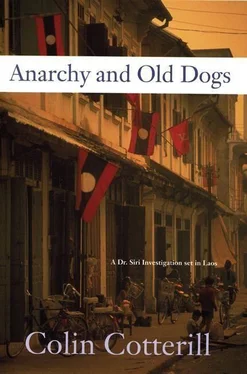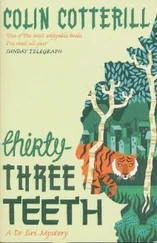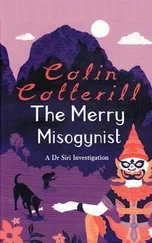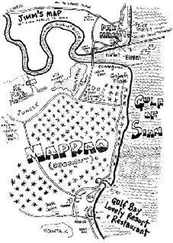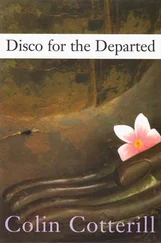Colin Cotterill - Anarchy and the Old Dogs
Здесь есть возможность читать онлайн «Colin Cotterill - Anarchy and the Old Dogs» весь текст электронной книги совершенно бесплатно (целиком полную версию без сокращений). В некоторых случаях можно слушать аудио, скачать через торрент в формате fb2 и присутствует краткое содержание. Жанр: Криминальный детектив, на английском языке. Описание произведения, (предисловие) а так же отзывы посетителей доступны на портале библиотеки ЛибКат.
- Название:Anarchy and the Old Dogs
- Автор:
- Жанр:
- Год:неизвестен
- ISBN:нет данных
- Рейтинг книги:3 / 5. Голосов: 1
-
Избранное:Добавить в избранное
- Отзывы:
-
Ваша оценка:
- 60
- 1
- 2
- 3
- 4
- 5
Anarchy and the Old Dogs: краткое содержание, описание и аннотация
Предлагаем к чтению аннотацию, описание, краткое содержание или предисловие (зависит от того, что написал сам автор книги «Anarchy and the Old Dogs»). Если вы не нашли необходимую информацию о книге — напишите в комментариях, мы постараемся отыскать её.
Anarchy and the Old Dogs — читать онлайн бесплатно полную книгу (весь текст) целиком
Ниже представлен текст книги, разбитый по страницам. Система сохранения места последней прочитанной страницы, позволяет с удобством читать онлайн бесплатно книгу «Anarchy and the Old Dogs», без необходимости каждый раз заново искать на чём Вы остановились. Поставьте закладку, и сможете в любой момент перейти на страницу, на которой закончили чтение.
Интервал:
Закладка:
But there was one factor they’d failed to take into consideration. Civilai had a mind of his own, a considerable mind at that. At the lycйe in Saigon he’d befriended another son of the mandarins by the name of Hok Nguyen Truk. They were both idealists, and their curiosity had led them to a startling discovery. The poor in their respective countries were being squeezed dry by wealthy landlords, by the same families who’d raised the two boys to believe it was normal to have a man to trim one’s toenails. This revelation resulted in a hatred of the class to which they belonged and a hostility toward their fathers. They detested them for fawning on the French imperialists and for growing fatter from their dealings with the French while the poor starved.
So there they were, two angry youths in search of a sympathetic doctrine. They found it in the Paris of 1923. They arrived at a Sorbonne that was a safe haven for liberals and members of the lunatic fringe. Although their classes were comparatively conservative, the student body was replete with left-wingers and radicals. At a rally one weekend they met a Vietnamese who was making a living on the docks during the day and proselytizing Marxism-Leninism at night. He’d given his name as Nguyen Tat Than. He was a lean, hungry-eyed man in his early thirties who wore French suits elegantly and spoke with passion. His philosophies and hopes so closely matched their own that they soon shared his dream to take socialism to Indochina and free their downtrodden brothers and sisters from the repressive yoke of colonialism.
In this idealistic state, Civilai had chosen to ignore the absence in Laos of one of the fundamental components for a successful communist revolution. There was no rebellious Lao proletariat. There were no factories in which to organize unions, and hardly any working class. Eighty percent of the people grew rice on small plots of land. All their energy was invested in survival. The farmers were so resigned to their fate that a great deal of agitation would have been needed to convince them they were dissatisfied at all.
But by the time the two young men arrived back in Asia in 1929, the seeds of revolt had been sown in their fertile minds. Communism would save their repressed countrymen whether they liked it or not. In Siam they reunited with their guru Nguyen Tat Than, who by then was calling himself Quoc and posing as a Buddhist monk. The French had a death warrant out for him in Vietnam for his agitation in rural areas. Quoc was one of the many pseudonyms adopted for his survival by the remarkable man, but it was the name on an identity card belonging to a deceased Chinese merchant that would ultimately provide the sobriquet the world most associated with him: Ho Chi Minh.
Civilai and Hok traveled with Ho to Hong Kong, where, in 1930, they helped establish the Communist Party of Vietnam. As the only Lao in the group, Civilai took responsibility for organizing his own people to rise up against the French tyrants and reclaim their homeland. But therein lay one more potentially insurmountable problem. Laos only existed as a geographical entity because, to cut down on paperwork, a French administrator had inked a national border around some thirty diverse tribal groups and posted an announcement that this was now officially a country. Ethnic Lao constituted no more than sixty percent of this brand-new, custom-built colony.
This posed a quandary for Civilai and his cadres as they wandered from village to village stirring up national pride, building a national identity from the ground up. The villagers quite logically argued that they hadn’t wanted to be Lao in the first place. Why should they fight for the right to be so? That was perhaps why the Vietnamese revolution had taken shape so efficiently and why Civilai had aged rapidly over the years.
The rain shower had exhausted itself even before the baguettes. They’d finished their lunch, these purveyors of frustrating politics, and sat still and silent on their log. Crumbs lay at their feet like wood shavings around a completed carving. Neither wanted to voice his feelings but Siri could tell what his friend was thinking. Avoiding a well-organized coup at this juncture in history could very well prove impossible. If that weren’t the case, he knew Civilai would have headed straight off to his office to set wheels in motion. Instead he stared dully at the river.
“I’m off to Pakse this evening,” Siri said.
“Why?”
“Some fool electrocuted himself in the bath.”
“Hmm. Well worth traveling four hundred miles to see, I’d say.”
“Two birds, one stone.”
“The dentist’s letter?”
“It was postmarked Pakse.”
“You want to get your hands on the Devil’s Vagina.” “Who wouldn’t?”
“You’re interfering in something that could get you killed, you know?”
“I’ve dodged bullets, escaped exploding buildings. I’ve even eaten in the hospital canteen for over a year. If I can survive that, I can get through anything. I’m starting to believe I’m invincible.”
“You’re not.”
“Then I’ll go down kicking and screaming. One day, during this or the next junta reign, they’ll remember me as a hero and put my face on a stamp. I’ll meet Boua in Nirvana and have something to boast about. I might even make her proud of me, at last.”
“Your wife was always proud of you, little brother.”
“You think so?”
“I know she was.” A glorious yellow caterpillar had lowered itself from the tree on a web rope and come to rest on Civilai’s knee. Siri watched him gently run his finger along its back. “Of course, she always preferred me to you. But she was quite fond of you.”
Siri laughed and shook his head.
“Being perfect must have made your life miserable at times,” Siri said.
“The Lord Buddha says all existence involves suffering.”
“Is that right? Didn’t he have a thousand concubines before he saw the light?”
“Exactly. So he knew what suffering was all about. I have just the one and I suffer interminably.”
“Next time I meet Nong for one of our secret afternoon trysts I’m going to tell her you called her a concubine.”
Civilai didn’t rise to the bait.
“I’m coming with you,” he said.
“To meet your wife?”
“To Pakse.”
“Really? Don’t you have meetings to go to? Hands to shake?”
“They owe me a break. You’re a doctor. You can diagnose me with some disease, recommend I take a few days to recover from it.”
Siri was delighted. “All right. Any specific requests?”
“Nothing disfiguring. Something that doesn’t stop me drinking.”
“Syphilis would put you down for a day or two.”
“No. I don’t think Mrs. Nong would see the funny side of that. How about something internal and painful but non-life threatening?”
“Chronic hemorrhoids?”
“Perfect.”
Siri was just completing Civilai’s medical certificate when Phosy stopped by the morgue. He wore a layer of dust and looked like a shift worker at the snuff factory.
“How did it go?” Siri asked. As Siri had to prepare for his trip south, they’d decided Phosy should go by himself to revisit the dentist’s wife.
“It was a lot faster on your bike.”
“I said you could use it.”
“I know, but regulations. We have to use the department scooter on official business.”
“Even if it’s a pink Vespa?”
“It’s lilac. At least it was until today.”
“I’d hate to think of you giving chase to a criminal on that.”
“Come on, Siri. You know there are no criminals in the PDR Laos.”
“You saw the widow?”
“I saw what was left of her.”
“What do you mean?”
“Well, I got there at about eleven. The door was ajar and when I called out, there was no answer. I went inside and it was obvious there’d been some kind of struggle. The table was on its side and the pieces of that game thing had been scattered. There were cups and papers lying all around. Then I saw the blood.”
Читать дальшеИнтервал:
Закладка:
Похожие книги на «Anarchy and the Old Dogs»
Представляем Вашему вниманию похожие книги на «Anarchy and the Old Dogs» списком для выбора. Мы отобрали схожую по названию и смыслу литературу в надежде предоставить читателям больше вариантов отыскать новые, интересные, ещё непрочитанные произведения.
Обсуждение, отзывы о книге «Anarchy and the Old Dogs» и просто собственные мнения читателей. Оставьте ваши комментарии, напишите, что Вы думаете о произведении, его смысле или главных героях. Укажите что конкретно понравилось, а что нет, и почему Вы так считаете.
